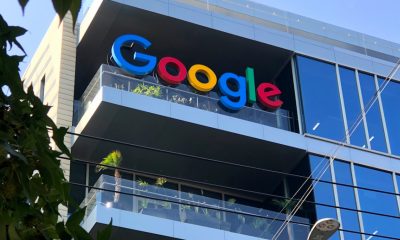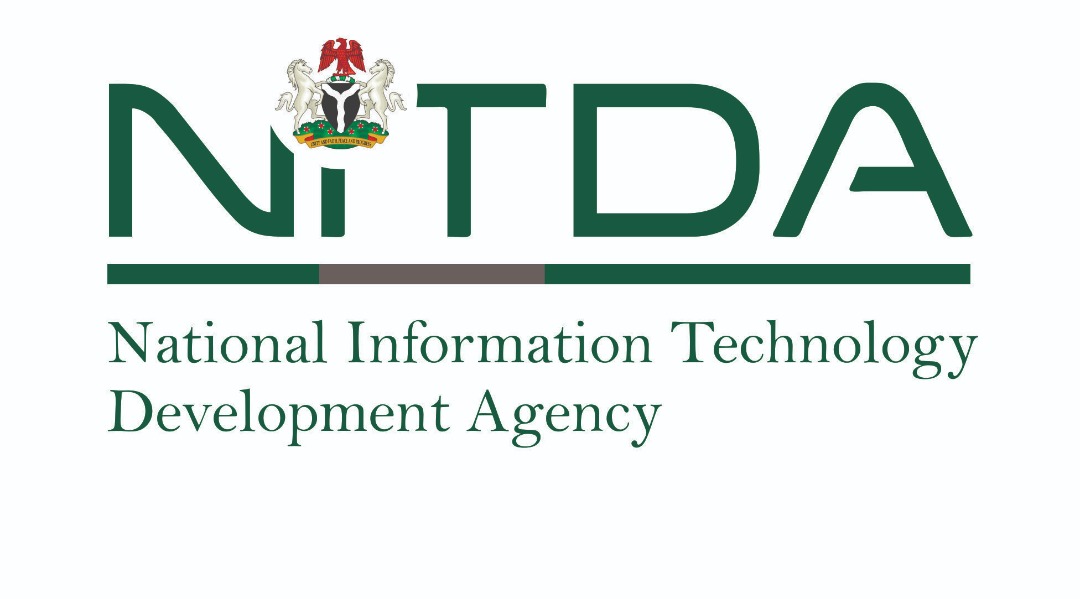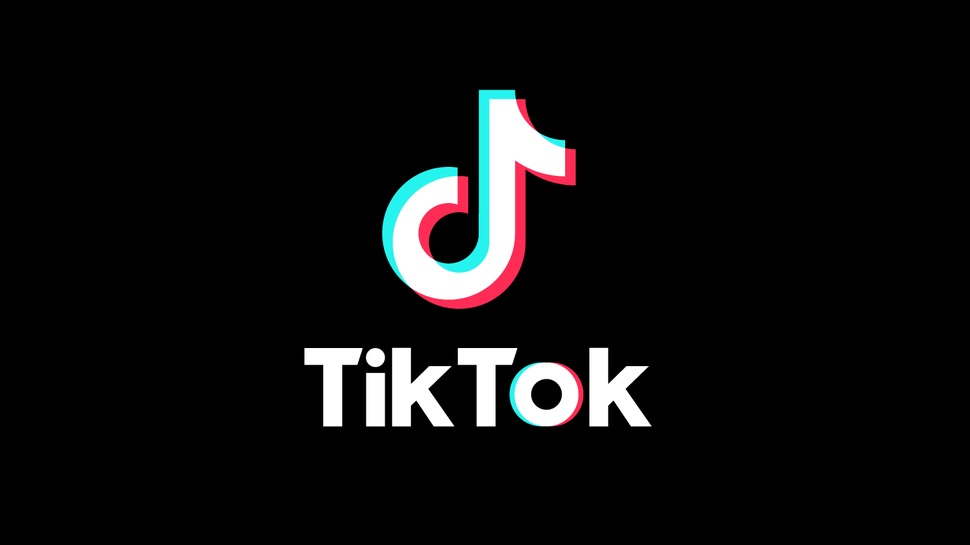Technology
Most Govt Agencies Use ICT Projects to Steal Public Funds—NITDA
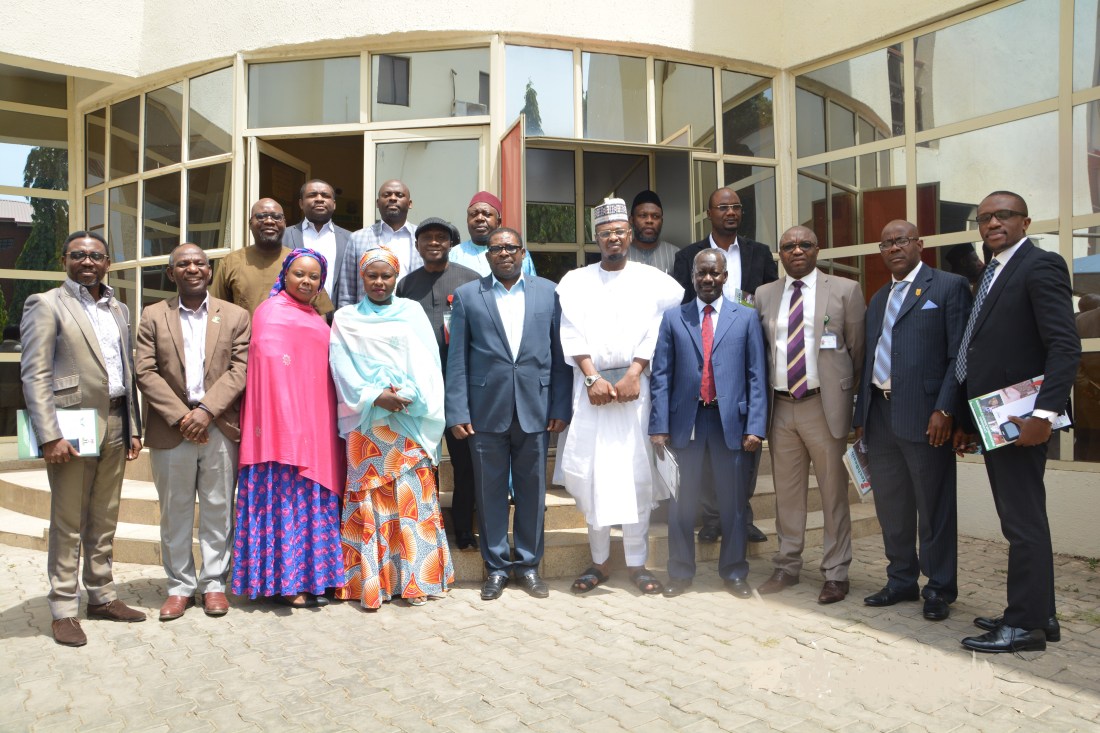
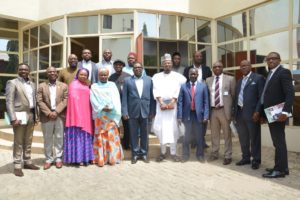
By Modupe Gbadeyanka
The National Information Technology Development Agency (NITDA) and Galaxy Backbone have collaborated with the sole aim of deepening rapid penetration of Information and Communication Technology (ICT) in Nigeria.
According to the Chief Executive Officers of NITDA, Dr Isa Ali Ibrahim Pantami and that that of Galaxy Backbone, Mr Yusuf Kazaure, lack of synergy, collaborations and unhealthy rivalry among ICT parastatals under the Ministry of Communications in the past affected the growth of the sector.
Mr Pantami, when he received the Galaxy Backbone boss at his office recently, lamented that most MDAs have turned IT projects to conduit pipes with which they siphon public funds because it requires limited scrutiny in the National Assembly. He affirmed the readiness of NITDA to stop the unholy practices.
The NITDA DG stated that looking at the ICT sector, it was practically impossible for the agencies to work in silos and called for proper synergy and understanding among them. He added that what is important is the development of the nation not personal credit.
He said the main focus of NITDA was to regulate the IT industry because one of the challenges he identified on coming on assumption of office was that the sector is not properly regulated adding that it also accounts for the capital flight and pressure on foreign exchange.
The NITDA boss explained that his effort in repositioning NITDA as the clearing house of all government IT projects has started yielding the desired results as the Federal Executive Council recently rejected some proposed IT projects due to lack of proper clearance from NITDA.
“We have written to MDAs that NITDA is the clearing house for all government IT projects and we are ready to take any violator of the law to court. Our Act empowers us to imprison any violator between one to three years,” he said.
He said the importance of obtaining NITDA’s clearance is to do ‘a value-for-money analysis’ of the projects and reduce wastage of public funds which helps the nation in saving considerable funds.
The DG informed the Galaxy Backbone Management that NITDA as a regulator, would support the operator.
“We are not the operator, we are the regulator and there is need for the regulator to support the operator.
“We have directed the MDAs to host their website on Galaxy backbone infrastructure except where is absolutely necessary because doing contrary to that is compromising the security of the nation.
“We have the power to design guidelines to make sure all the MDAs patronize galaxy backbone and improve our drive to develop our local content,“ he said.
He however, suggested that a standing committee should be set up between NITDA and Galaxy Backbone with the mandate of looking at issues of common interests that affect the two organisations.
In his remarks, the Galaxy Backbone boss pointed out that there was so much work to be done in developing the nation’s ICT sector with limited resources.
He noted that this calls for a form synergy and collaboration among ICT agencies, pointing out that the issues preventing synergy among the parastatals under the supervising Ministry have been broken down in the Memorandum of Understanding (MoU) signed to streamline the functions of each agency.
He explained that it was on the import of the new approach he decided to visit NITDA to identify areas of possible collaborations.
Mr Kazaure recalled that Galaxy came into being as a result of inter-ministerial advice in which NITDA played a crucial role in establishing.
He added that it was in the wisdom of government to register it as a private Liability Company. He said the company has recognized NITDA as the regulator of the IT sector in the country and it is ready to work with the Agency to provide services that are determined by the users.
However, he lamented that in spite of the robust infrastructure of the company, a lot of Ministries Departments and Agencies have not complied with the directive of hosting their data locally.
He added that duplication of Data Centres by various MDAs makes it difficult for government to take any e-government initiative, urging the agency to roll out regulations that would compel the MDAs use a common platform provided by Galaxy so as to deepen the ICT market for people who want government service.
“It is normal to make Galaxy a monopolistic entity because it has the capacity to provide a common platform for agencies to communicate with each other, stating that the company has hosted 250 government websites and created 40,000 e-mail accounts for staff of the federal government,” he said.
Technology
Expert Reveals Top Cyber Threats Organisations Will Encounter in 2026

By Adedapo Adesanya
Organisations in 2026 face a cybersecurity landscape markedly different from previous years, driven by rapid artificial intelligence adoption, entrenched remote work models, and increasingly interconnected digital systems, with experts warning that these shifts have expanded attack surfaces faster than many security teams can effectively monitor.
According to the World Economic Forum’s Global Cybersecurity Outlook 2026, AI-related vulnerabilities now rank among the most urgent concerns, with 87 per cent of cybersecurity professionals worldwide highlighting them as a top risk.
In a note shared with Business Post, Mr Danny Mitchell, Cybersecurity Writer at Heimdal, said artificial intelligence presents a “category shift” in cyber risk.
“Attackers are manipulating the logic systems that increasingly run critical business processes,” he explained, noting that AI models controlling loan decisions or infrastructure have become high-value targets. Machine learning systems can be poisoned with corrupted training data or manipulated through adversarial inputs, often without immediate detection.
Mr Mitchell also warned that AI-powered phishing and fraud are growing more sophisticated. Deepfake technology and advanced language models now produce convincing emails, voice calls and videos that evade traditional detection.
“The sophistication of modern phishing means organisations can no longer rely solely on employee awareness training,” he said, urging multi-channel verification for sensitive transactions.
Supply chain vulnerabilities remain another major threat. Modern software ecosystems rely on numerous vendors and open-source components, each representing a potential entry point.
“Most organisations lack complete visibility into their software supply chain,” Mr Mitchell said, adding that attackers frequently exploit trusted vendors or update mechanisms to bypass perimeter defences.
Meanwhile, unpatched software vulnerabilities continue to expose organisations to risk, as attackers use automated tools to scan for weaknesses within hours of public disclosure. Legacy systems and critical infrastructure are especially difficult to secure.
Ransomware operations have also evolved, with criminals spending weeks inside networks before launching attacks.
“Modern ransomware operations function like businesses,” Mitchell observed, employing double extortion tactics to maximise pressure on victims.
Mr Mitchell concluded that the common thread across 2026 threats is complexity, noting that organisations need to abandon the idea that they can defend against everything equally, as this approach spreads resources too thin and leaves critical assets exposed.
“You cannot protect what you don’t know exists,” he said, urging organisations to prioritise visibility, map dependencies, and focus resources on the most critical assets.
Technology
NCC Begins Review of National Telecommunications Policy After 26 Years

By Adedapo Adesanya
In a consultation paper released to the public, the commission said it is seeking input from stakeholders, including telecom operators, tech companies, legal experts, and the general public, on proposed revisions designed to reposition Nigeria’s telecommunications framework to match current digital demands. Submissions are expected by March 20, 2026.
The NTP 2000 marked a turning point in Nigeria’s telecom landscape. It replaced the 1998 policy, introducing full liberalisation and a unified regulatory framework under the NCC, and paved the way for the licensing of GSM operators such as MTN, Econet (now Airtel), and Globacom in 2001 and 2002.
Prior to the NTP, the sector was dominated by Nigerian Telecommunications Limited (NITEL), a government-owned monopoly plagued by obsolete equipment, low teledensity, and poor service. At the time, Nigeria had fewer than 400,000 telephone lines for the entire country.
However, the NCC noted that just as the 1998 policy was overtaken by global developments, the 2000 framework has become structurally misaligned with today’s telecom reality, which encompasses broadband, 5G networks, satellite internet, artificial intelligence, and a thriving digital economy worth billions of dollars.
“The rapid pace of technological change and emerging digital services necessitate a comprehensive update to ensure the policy continues to support economic growth while protecting critical infrastructure,” the Commission stated.
The review will target multiple chapters of the policy. Key revisions include: Enhancements on online safety, content moderation, digital services regulation, and improved internet exchange protocols; a modern framework for satellite harmonisation, coexistence with terrestrial networks, and clearer spectrum allocation to boost service quality, and policies to address fiscal support, reduce multiple taxation, and lower operational costs for operators.
The NCC is also proposing entirely new sections to the policy to address emerging priorities. Among the key initiatives are clear broadband objectives aimed at achieving 70 per cent national broadband penetration, with a focus on extending connectivity beyond urban centres to reach rural communities.
The review also seeks to formally recognise telecom infrastructure, including fibre optic cables and network masts, as Critical National Infrastructure to prevent vandalism and enhance security.
In addition, the commission is targeting the harmonisation of Right-of-Way charges across federal, state, and local governments, alongside the introduction of a one-stop permitting process for telecom deployment, designed to reduce bureaucratic delays and lower operational costs for operators.
According to the NCC, the review aims to make fast and affordable internet widely accessible. “The old framework was largely voice-centric. Today, data is the currency of the digital economy,” the commission said, highlighting the need to close the urban-rural broadband divide.
The consultation process is intended to gather diverse perspectives to ensure the updated policy reflects current technological trends, market realities, and consumer needs. By doing so, the NCC hopes to maintain the telecommunications sector’s role as a key driver of economic growth and digital inclusion.
Technology
FG to Scrutinise MTN’s $2.2bn Full Take Over of IHS Towers

By Adedapo Adesanya
The Minister of Communications, Innovation and Digital Economy, Mr Bosun Tijani, says the Nigerian government is assessing MTN Group’s acquisition of IHS Towers to ensure the deal aligns with Nigeria’s telecommunications development goals.
On Tuesday, MTN Group said it has agreed to acquire the remaining 75.3 per cent stake in IHS Holding Limited in an all-cash deal valued at $2.2 billion. The deal will be funded through the rollover of MTN’s existing stake of around 24 per cent in IHS, as well as about $1.1 billion in cash from MTN, roughly $1.1 billion from IHS’s balance sheet, and the rollover of no more than existing IHS debt.
Mr Tijani, in a statement, said the administration of President Bola Tinubu has spent the past two years strengthening the telecom sector through policy clarity, regulatory support, and engagement with industry stakeholders, boosting investor confidence and sector performance.
“Recent financial results from key operators show improved profitability, increased investment in telecoms infrastructure, and operational stability across the sector,” he said.
“These gains reflect the resilience of the industry and the impact of government reforms.”
The minister added that telecommunications infrastructure is critical for national security, economic growth, financial services, innovation, and social inclusion.
“We will undertake a thorough assessment of this development with relevant regulatory authorities to review its impact on the sector,” Mr Tijani said.
He added that the review aims to ensure market consolidation or structural changes, protect consumers, safeguard investments, and preserve the long-term sustainability of the telecom industry.
Mr Tijani also said the government remains committed to maintaining a stable and forward-looking policy environment to keep Nigeria’s telecommunications sector strong and sustainable, in line with the administration’s broader digital economy vision.
Upon completion, the transaction will see MTN transition from being a minority shareholder in IHS to a full owner. It will also see IHS exit from the New York Stock Exchange and become a wholly owned subsidiary of MTN.
For MTN, the deal represents a decisive shift as data demand surges and digital infrastructure becomes increasingly strategic with a booming digitally-oriented youth population on the continent.
-

 Feature/OPED6 years ago
Feature/OPED6 years agoDavos was Different this year
-
Travel/Tourism10 years ago
Lagos Seals Western Lodge Hotel In Ikorodu
-

 Showbiz3 years ago
Showbiz3 years agoEstranged Lover Releases Videos of Empress Njamah Bathing
-

 Banking8 years ago
Banking8 years agoSort Codes of GTBank Branches in Nigeria
-

 Economy3 years ago
Economy3 years agoSubsidy Removal: CNG at N130 Per Litre Cheaper Than Petrol—IPMAN
-

 Banking3 years ago
Banking3 years agoSort Codes of UBA Branches in Nigeria
-

 Banking3 years ago
Banking3 years agoFirst Bank Announces Planned Downtime
-

 Sports3 years ago
Sports3 years agoHighest Paid Nigerian Footballer – How Much Do Nigerian Footballers Earn


